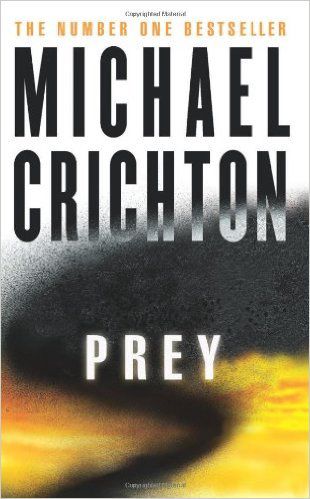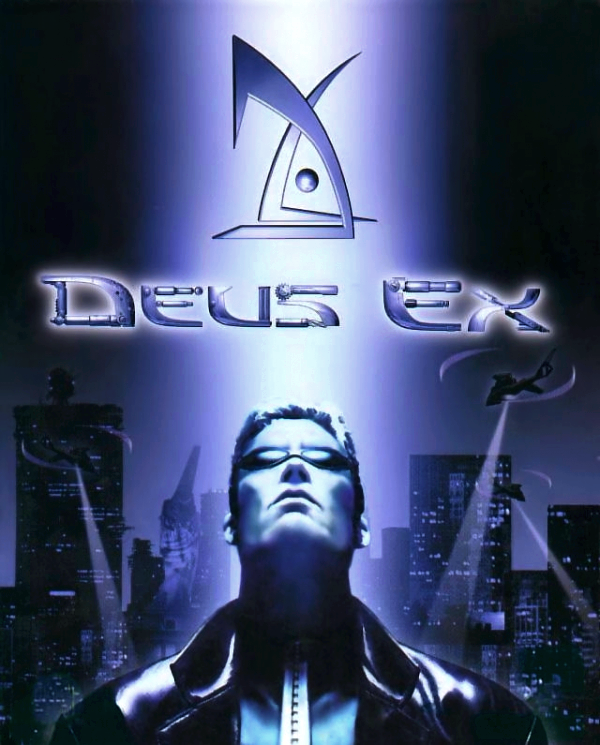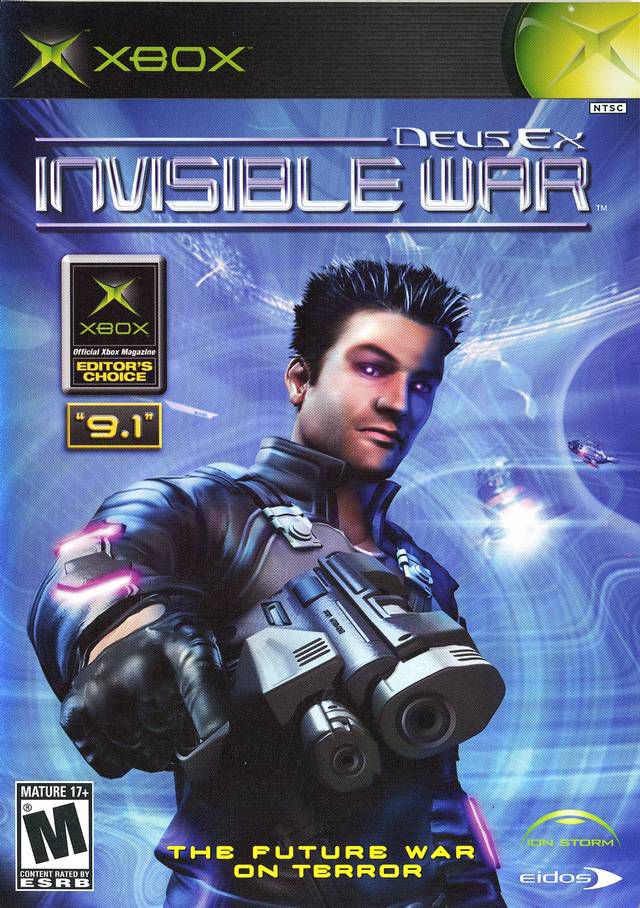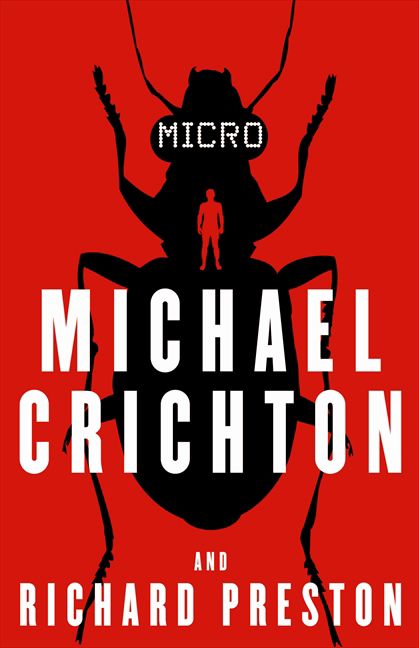@Ooorah Recommends...
Some NanoPunk recommendations from MadMikeMarsbergen!
1. PREY by Michael Crichton

If you've ever read anything by Crichton, you know he writes fast-paced, thrilling tales that will be hard to put down if you like his style. I read this back in early May 2015 over the course of a few days, and I seem to recall it was my first Crichton book. Having no real idea what I was getting into—other than that this dealt with a nanoparticle experiment gone wrong—I was hooked from the get-go. It has a first-person narrative, which initially made me wary as I tend to prefer third-person, but Crichton writes so smoothly and efficiently that it didn't bother me in the slightest. This book is loaded with suspense, thrills, and even some chills.
Some reviewers say the scientific jargon was too complex and it ruined their experience, but I'm going to assume they were smoking cellophane from a Coke-bottle bong, as Crichton tells you what you need to know and explains it in a fairly breezy manner—kind of like a solid high-school science teacher who understands being relatable is the first step to drawing in a layman. Or maybe I'm just smarter than them. But the thought of them being brain-damaged from a nasty addiction to bioplastics makes me grin too widely, so we'll go with that.
If, for whatever reason, you've stayed away from PREY, or if you've never read anything by Michael Crichton, pick this bastard up and give it a go. You'll more than likely enjoy it.
2. DEUS EX

A video game from 2000, renowned for what was then considered the pinnacle of video-game storytelling. Coming out initially on the PC (and later on PS2), DEUS EX was the start of a franchise that's undergone numerous changes over the years. The first sequel—INVISIBLE WAR, which we'll get to in the next piece—came three years later and suffered from consolization, and it wasn't until 2011 that the third game—a prequel to the original, called HUMAN REVOLUTION—was released. The video-game industry differed quite a bit by then, and so the games also had to in order to meet the demands of the changing market.
But this is about DEUS EX, the original, and I'm a bit biased in that I played a pirated copy when it first came out, back when I was an impressionable nine-year-old. I wasn't as jaded, wasn't as slow. If I were to play this game for the first time now, I would complain about the crappy controls. But you shouldn't judge an older game by the standards of the present.
So no complaints about controls.
DEUS EX is set in 2052, a dystopian world that's been ravaged by the wealthiest 1% and an engineered plague called the Grey Death, which is lethal and only countered by an expensive vaccine called "Ambrosia," unaffordable to most and supplies first reach the elite. This is a world where conspiracies are true—the Illuminati rules from the shadows, Area 51 houses aliens, nefarious experimentations take place to keep certain people down and create others to police the world.
You play JC Denton, an agent for UNATCO—the United Nations Anti-Terrorist Coalition—who has been modified with nanotech augmentations, giving him the ability to see through walls, lift extremely heavy objects, cloak himself, run super-fast, breathe indefinitely underwater, among other things. Denton's first mission after completing UNATCO training is to investigate the presence of the NSF—National Secessionist Forces, an apparent terrorist group—on Liberty Island, who've stolen a shipment of the Ambrosia vaccine and are hiding out in the Statue of Liberty (which had been damaged the previous year, supposedly in a terrorist attack by Silhouette, a French group).
What follows is the kind of paranoid thriller that would make a great movie—if Hollywood would get off their pale, hairless, monkey asses and stop remaking/rebooting classics.
Highly recommended for gamers to check out. There's a mod on Steam (the digital-distribution platform) that improves the game, entitled Deus Ex: Revision. If you don't play games, maybe check out a YouTube series of someone playing the game, as the story is great stuff.
3. DEUS EX: INVISIBLE WAR

As previously mentioned, DEUS EX: INVISIBLE WAR, the second game in the series, came out in 2003. At this point in time, the Xbox was King Shit in the video-game world, so it wasn't a surprise that a new Deus Ex game would be released on the system. Unfortunately, the game was designed with the Xbox in mind—this console (hence, "consolization") was slower than what a PC was capable of, and it lacked the ability to handle large maps, so the levels were reduced in size. There are still a lot of small levels, however there are also a lot of loading screens. So the game suffered for that fact.
Anyway, INVISIBLE WAR takes place in 2072, twenty years after the first game, in a world still trying to rebuild itself after something called "The Collapse": a period of economic depression and warfare, of technological disrepair. During The Collapse, certain groups used it as an opportunity to take control—the WTO (World Trade Organization), who sought to create highly regulated city-states and a military complex... basically a capitalist wet-dream; the Order Church, which encompassed all major world religions into one new faith, wanting to create a theocratic system of government; the Knights Templar, descendants of the one that conspiracy theorists know and love, who want to rid the world of biomodification because it's not "pure"; ApostleCorp, which seeks to biomodify every person on the planet in order to achieve true equality; and the Omar, a transhuman group of heavily modified people, who control the black market.
Amidst all this is Alex D.—who can be either male or female depending on your preference—a trainee at Tarsus (a worldwide academy, providing the best education), sent to the Seattle Tarsus facility after a terrorist attack destroys most of Chicago. Soon after, agents apparently from the Order Church attack the Seattle facility—or did they? Billie, your friend from Chicago, also a Tarsus trainee, joins the Order and claims Tarsus is experimenting on its subjects in a biomodication program. Naturally, Alex D. unlocks these nanotech augmentations, getting some similar abilities to JC from the previous game, but also some new ones.
From there, the game throws many twists and turns at you, and you'll be able to choose who to work with (or work with all of them, if you like). It's likely you won't know who to believe, as they all seem to be withholding information. You'll need to hack shit and chat with people and complete missions to try and figure out what's really going on in the world, where conspiracies reign freely.
A solid entry in the series, and another highly recommended title from yours truly.
4. MICRO by Michael Crichton & Richard Preston

Released in 2011, MICRO actually came out after Crichton died of lymphoma in 2008. It was one of a few unfinished novels found on his computer, and sci-fi/thriller writer Richard Preston was tasked with polishing and finishing the book. Now, I've never read Preston so I can't say which parts are him and which are Crichton, but this reads like a Crichton novel.
I've seen other reviewers—and the praise on the back, for instance—compare this book to JURASSIC PARK, which is understandable in that the protagonists are thrown into a hostile jungle with enormous creatures (in this case, insects and the like). To me it initially felt more like SPHERE, one of Crichton's pre–JURASSIC PARK books. We start things off by being introduced to a cast of characters who all, career- and education-wise, fulfill something crucial to the story that follows. SPHERE was similar in that we had a team of scientists, all specializing in different areas, assembled to tackle the various problems faced when exploring the mysterious underwater sphere. It seems a bit more contrived in this one—the characters in MICRO just so happen to be an ideal team for the events, whereas SPHERE had them picked because of their specialties.
Some of the characters are funny, some are serious, some are so serious they're funny—they're all fairly well-drawn, though. If I've got to complain about something, I'll just say there was a bit too much repetition, as Crichton/Preston would jump around to each character (and they rarely were separated) and state their thoughts, which often tended to be similar.
I would've liked the pacing to be faster. It seemed like it could've used a trim, just to quicken things up a bit. Still an intriguing read, though, and one you should definitely check out.
Bạn đang đọc truyện trên: AzTruyen.Top